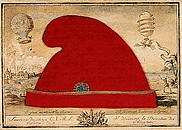Japan, a country without revolution? En ligne
dimanche 19 décembre 2021Eddy Dufourmont, "Japan, a country without revolution? Uses of kakumei and historical debates in the Meiji era (1868-1912)", Historians of Asia on Political Violence, Anne Cheng et Sanchit Kumar (dir.), Paris, Collège de France, 2021 :
As any country in the world, Japan in the course of its history experienced many phenomena of internal wars, on different scales and of different natures. The construction of fortified villages in the Yayoi period, the political struggles of the Yamato kingdom, the revolts against the imperial regime in the Heian period, the battles between warrior clans in the 12th century or political anarchy in the 15th and 16th centuries are some examples. Modern Japan experienced a major political change with the coup initiated in 1868 by the Satsuma and Choshu clans of southwest Japan against the Tokugawa shogunate. The victory of Satsuma and Choshu and the establishment of the imperial regime in 1889 meant the creation of an ideology, a discourse legitimising the imperial regime based on a false historical fact –the supposedly unbroken line of divine emperors starting with the fictitious Jinmu. The creation of the imperial regime meant also a general revision of the Japanese past, starting with the coup of 1868 itself. During all its existence, the management of Japanese history was a central problem for the regime. As was shown by Mitani Hiroshi, in 1940 the imperial regime published a large compilation of sources entitled “History of the restoration” (Ishinshi). This work established a vision of the birth of modern Japan that became the classical narrative to describe it, even outside Japan.

